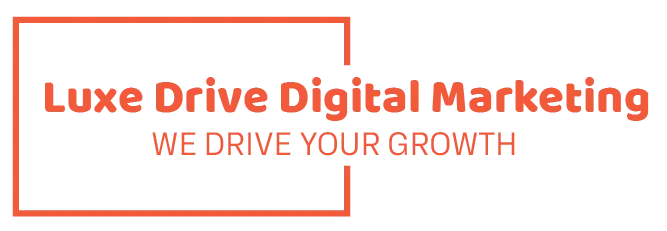The intersection of E-A-T (Expertise, Authoritativeness, Trustworthiness) and YMYL (Your Money or Your Life) concepts has become crucial for SEO success. Google’s algorithms increasingly prioritize high-quality content, especially for topics that can impact users’ wellbeing or financial stability. Understanding how to create content that satisfies these requirements is essential for websites looking to rank well in search results while providing genuine value to their audience.
What Are YMYL Pages and Why Do They Matter for SEO?
YMYL stands for “Your Money or Your Life,” a classification Google uses to identify web pages that could potentially impact a person’s future happiness, health, financial stability, or safety. YMYL pages are held to higher quality standards because the consequences of low-quality content in these categories can be serious.
Google’s quality rater guidelines specifically highlight YMYL topics as requiring exceptional care and accuracy. Search quality evaluator guidelines instruct human reviewers to scrutinize these pages more carefully than other types of content. For website owners and content creators, understanding whether your site falls into a YMYL category is the first step toward implementing appropriate quality measures.
YMYL websites typically cover topics like health and safety, financial advice, legal information, news, civics, and shopping or transactional pages. If your content touches on any of these areas, you’re responsible for meeting higher standards of accuracy and trustworthiness.
What is E-A-T and How Does it Relate to YMYL Content?
E-A-T stands for Expertise, Authoritativeness, and Trustworthiness—three critical factors Google uses to evaluate content quality. For YMYL sites, demonstrating high E-A-T is not optional but essential for SEO success.
Expertise refers to the knowledge and skills of the content creator. For YMYL topics, formal expertise is often necessary. For example, medical advice should come from qualified healthcare professionals. Google wants to see clear evidence that the creator of the content has the appropriate background to be providing information on sensitive topics.
Authoritativeness extends beyond the individual author to encompass the reputation of the website as a whole. Websites gain authority through recognition from experts in their field, citations, references, and positive reviews. Building authoritativeness takes time and consistent quality content creation.
Trustworthiness relates to the accuracy, transparency, and honesty of the content and the website. This includes clear information about who is responsible for the website, detailed author bios, secure connections, and accurate sourcing. For YMYL content, trustworthiness is perhaps the most crucial element of E-A-T.
What is E-E-A-T and How Does it Differ from E-A-T?
In recent updates to the search quality rater guidelines, Google introduced E-E-A-T, adding an extra “E” for Experience. This evolution reflects Google’s increasing emphasis on first-hand experience in content creation, particularly for YMYL topics.
Experience refers to the content creator’s first-hand or life experience with the subject matter. For example, someone who has personally managed a chronic health condition might provide valuable insights that complement medical expertise. This doesn’t replace the need for expertise but adds another dimension of credibility.
Google’s E-E-A-T guidelines recognize that both formal expertise and personal experience contribute to content quality. For YMYL content, the ideal scenario combines professional qualifications with practical experience, creating content that is both technically accurate and practically useful.
The systems use to rank content now consider these four dimensions when evaluating page quality. For content creators, this means demonstrating not just knowledge but also relevant experience when addressing YMYL topics.
How Can You Determine if Your Website Falls Under YMYL Category?
Identifying whether your website is considered YMYL requires understanding Google’s classification criteria. YMYL topics generally include content that, if presented inaccurately, could negatively impact a user’s health, happiness, safety, or financial stability.
Health and medical information is perhaps the most obvious YMYL topic. This includes content about diseases, drugs, medical treatments, nutrition, and mental health. If your website provides health advice or information, it falls squarely within the YMYL category and must demonstrate high E-A-T.
Financial information, including investment advice, insurance, tax strategies, retirement planning, and banking, also qualifies as YMYL content. Users making decisions based on this information could face significant financial consequences if the advice is poor or inaccurate.
News and current events, particularly those related to politics, science, or technology, are considered YMYL because they help people form opinions about the world. Legal information, civics, and government-related content also fall into this category due to their potential impact on people’s rights and responsibilities.
Even shopping pages can be YMYL if they involve significant purchases or financial transactions. If your site collects payment information or sells products that represent major investments, it likely qualifies as YMYL content.
What Are the Best Practices for Creating High-Quality YMYL Content?
Creating high-quality YMYL content requires a strategic approach that prioritizes accuracy, transparency, and user value. YMYL best practices begin with thorough research from authoritative sources. Every claim should be verifiable and, when appropriate, cited from recognized authorities in the field.
Transparency about who created the content is crucial for building trust. Clear author bios that highlight relevant qualifications, experience, and credentials help establish expertise. For medical or financial content, the credentials of content creators should be prominently displayed and verifiable.
Content structure matters significantly for YMYL pages. Make it easy for users to find the information they need by using clear headings, bullet points, and a logical flow. Comprehensive coverage of topics demonstrates expertise and helps users make informed decisions.
Regular updates are essential for YMYL content, as information in fields like health and finance can change rapidly. Outdated advice can be harmful, so establish a review schedule to ensure your content remains current and accurate.
User signals like engagement metrics, bounce rates, and time on page can indicate whether your content meets user needs. Google’s systems use these signals to help determine if the content provides genuine value to users searching for YMYL information.
How Does Google Evaluate the Quality of Your YMYL Content?
Google uses a complex set of factors to evaluate YMYL content quality, with E-E-A-T serving as a conceptual framework. While Google’s algorithms are sophisticated, they essentially try to determine if the content is trustworthy, authoritative, and created by experts with relevant experience.
Search quality raters help Google refine its algorithms by manually evaluating web pages according to detailed guidelines. While these raters don’t directly influence individual page rankings, their assessments help Google improve its automated systems use to rank content.
For YMYL pages, Google scrutinizes the website and who created the content. This includes examining author credentials, the site’s reputation, and whether the content aligns with scientific or expert consensus on the topic.
Backlink profiles remain important for YMYL sites, but the quality of those links matters more than quantity. Links from authoritative, relevant sites in your field signal to Google that experts trust your content.
User experience signals, including page speed, mobile-friendliness, and secure connections, play a role in Google’s quality assessment. For YMYL pages in particular, a professional presentation helps establish trustworthiness.
Why is Trustworthiness Crucial for YMYL Websites?
Trustworthiness forms the foundation of successful YMYL content because users need confidence in the information they’re consuming, especially when it could affect their health or finances. Building trustworthy content requires attention to several key factors.
Transparency about who is behind the website and content creates accountability. Users should easily find information about the company, organization, or individuals responsible for the website. This includes clear contact information, about pages, and detailed author bios.
Accuracy and factual correctness are non-negotiable for YMYL content. Claims should be supported by evidence, and content should align with scientific consensus or expert opinion. Presenting multiple perspectives is valuable, but distinguishing between established facts and opinions is essential.
Security measures like HTTPS encryption, clear privacy policies, and responsible data handling practices contribute to trustworthiness. Users need to know their personal information is safe, especially on YMYL sites that may collect sensitive data.
Regular content audits help maintain trustworthiness by identifying and correcting outdated or inaccurate information. This ongoing commitment to quality demonstrates responsibility and care for user wellbeing.
How Can You Demonstrate Authoritativeness in Your YMYL Content?
Authoritativeness in YMYL content comes from establishing your website and content creators as recognized experts in your field. Building this reputation requires consistent effort and strategic approaches.
Credentials matter significantly for YMYL topics. Ensure that content creators have relevant qualifications, and make these credentials visible through detailed author bios. For medical content, for instance, articles written by healthcare professionals carry more weight than those by general writers.
External recognition builds authoritativeness through mentions, citations, and links from other respected sources in your field. Guest posting on authoritative sites, participating in industry conferences, and being quoted in relevant publications all contribute to building authority.
Original research, case studies, and data analysis demonstrate deep knowledge of your subject matter. Publishing unique insights based on your expertise shows that you’re not just repeating information but contributing to the knowledge in your field.
Consistent quality across your website helps establish overall authoritativeness. Even non-YMYL content should maintain high standards, as Google evaluates the website as a whole when determining authority.
What Common Mistakes Should You Avoid When Creating YMYL Content?
Creating effective YMYL content requires avoiding several common pitfalls that can undermine your E-E-A-T and SEO efforts. Recognizing these mistakes is the first step toward producing high-quality content that ranks well.
Insufficient expertise is perhaps the most serious mistake in YMYL content creation. Having unqualified writers create content on sensitive topics can lead to inaccuracies and potentially harmful advice. Always match content creators to topics based on their qualifications and experience.
Lack of transparency about sources, authors, or potential conflicts of interest damages trustworthiness. Users and search engines need to know where information comes from and who stands behind it. Hiding this information creates suspicion and undermines credibility.
Outdated content can be actively harmful in YMYL categories where recommendations and best practices evolve. Implementing a regular review schedule ensures your content remains current and accurate.
Keyword stuffing and prioritizing SEO over quality creates low-quality content that fails to serve user needs. While SEO is important, YMYL content must prioritize accuracy and value over optimization techniques.
Shallow coverage of complex topics suggests a lack of expertise and fails to provide the comprehensive information users need to make important decisions. YMYL topics typically require in-depth treatment to be truly helpful.
How Can You Improve Your Website’s E-A-T for Better YMYL Rankings?
Improving your website’s E-A-T requires a holistic approach that encompasses content quality, technical elements, and reputation management. For YMYL sites, these improvements can significantly impact search rankings.
Start by auditing your existing content to identify pieces that need updating, expanding, or removing. Low-quality content can drag down the perception of your entire site, so prioritize quality over quantity.
Enhance author credentials by creating detailed bio pages that highlight qualifications, experience, and expertise. Link these bios to all content pieces to clearly establish the connection between expertise and information.
Build a strong backlink profile by creating content worthy of citation and actively engaging with others in your field. Quality backlinks from relevant, authoritative sources signal to Google that experts trust your content.
Implement structured data markup to help search engines understand your content and credentials. This can include author markup, organization information, and other relevant schemas that highlight your E-A-T signals.
Monitor your online reputation across review sites, social media, and industry publications. Addressing negative feedback professionally and highlighting positive mentions helps build a strong overall reputation that supports your E-A-T.
How Do SEO Experts Approach Content Creation for YMYL Topics?
SEO experts take a strategic approach to YMYL content creation, balancing optimization with the stringent quality requirements these topics demand. Their methods offer valuable insights for anyone creating content in these sensitive areas.
Comprehensive keyword research focuses not just on search volume but on understanding user intent. SEO experts analyze what users are really looking for when they search for YMYL topics, then create content that thoroughly addresses those needs.
Subject matter expert collaboration is standard practice among SEO experts working with YMYL content. This might involve interviewing experts, having qualified professionals review content, or hiring specialized writers with credentials in the field.
Content structure receives careful attention, with clear headings, table of contents, and logical organization that makes information accessible. This approach serves both users and search engines by making content easy to navigate and understand.
Supporting content that builds topical authority is created alongside core YMYL pages. This includes glossaries, explanatory articles, and related content that demonstrates depth of knowledge in the subject area.
Regular content updates are scheduled based on the nature of the topic and how quickly information changes. SEO experts understand that content has the power to help or harm users, and they take this responsibility seriously by ensuring information remains current.
Summary: Key Takeaways for Creating High-Quality YMYL Content
- Understand YMYL classification: Identify whether your content falls into categories that could impact users’ health, finances, safety, or wellbeing.
- Demonstrate E-E-A-T: Showcase expertise, experience, authoritativeness, and trustworthiness through credentials, transparent authorship, and accurate information.
- Prioritize trustworthiness: Build trust through transparency, accuracy, security measures, and regular content updates.
- Establish authoritativeness: Develop recognition through credentials, external validation, and original contributions to your field.
- Avoid common pitfalls: Ensure sufficient expertise, maintain transparency, keep content updated, and provide comprehensive coverage.
- Implement technical best practices: Use structured data, secure connections, and clear website information to support E-A-T signals.
- Collaborate with experts: Work with qualified professionals to create or review YMYL content.
- Focus on user needs: Create content that genuinely helps users make important decisions rather than just targeting keywords.
Conclusion
Creating high-quality YMYL content that satisfies Google’s E-E-A-T criteria is essential for websites looking to rank well in search engine results pages while providing valuable information to users. The process requires understanding how Google evaluates content, especially for topics that can significantly impact people’s lives. By focusing on expertise, experience, authoritativeness, and trustworthiness, content creators can boost their on-page SEO while fulfilling their responsibility to provide accurate, helpful content.
The quality of your YMYL content directly influences your website’s performance in search results, making it crucial for YMYL websites to implement best practices in content creation. As search engines like Google continue to refine their systems for evaluating content, the emphasis on E-E-A-T will only increase. By investing in content that demonstrates these qualities, you not only improve your SEO efforts but also better serve your audience with information they can trust when making important decisions about their money or their life.



